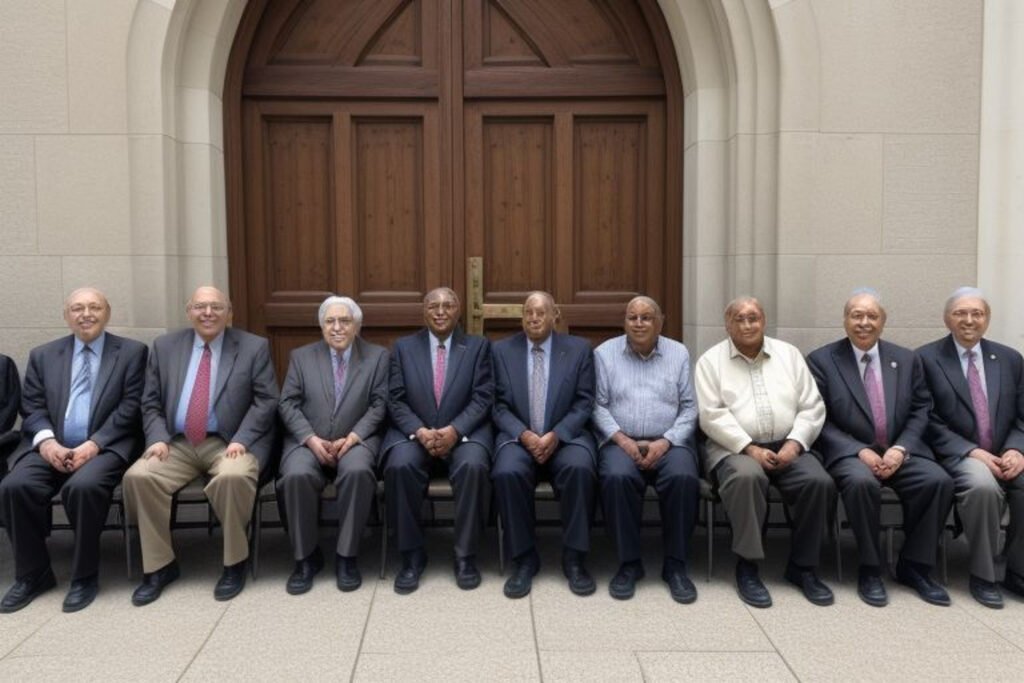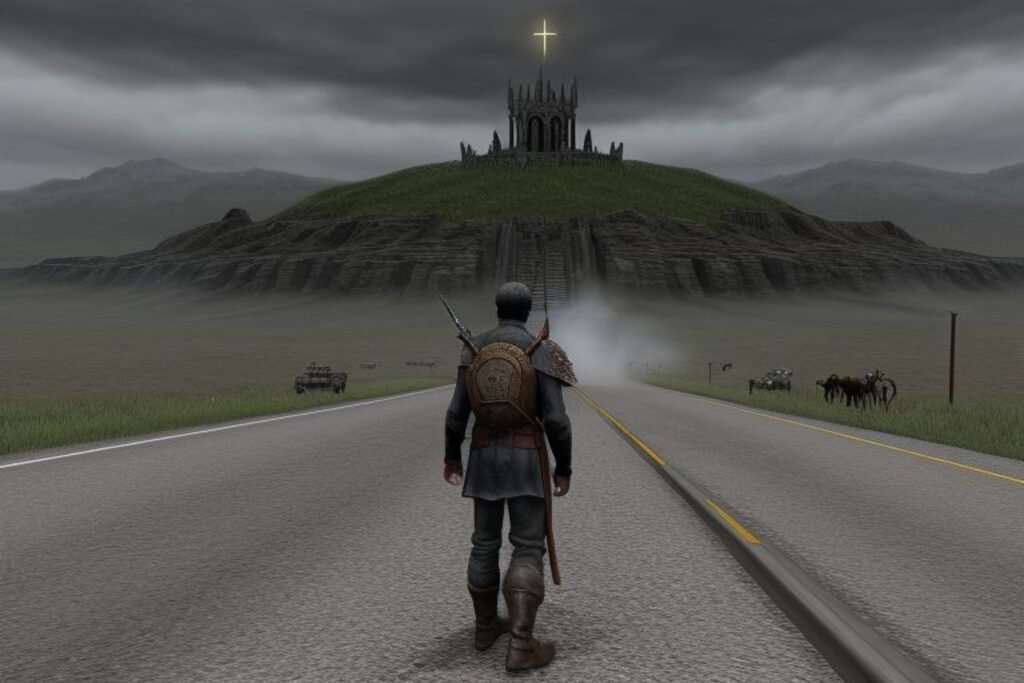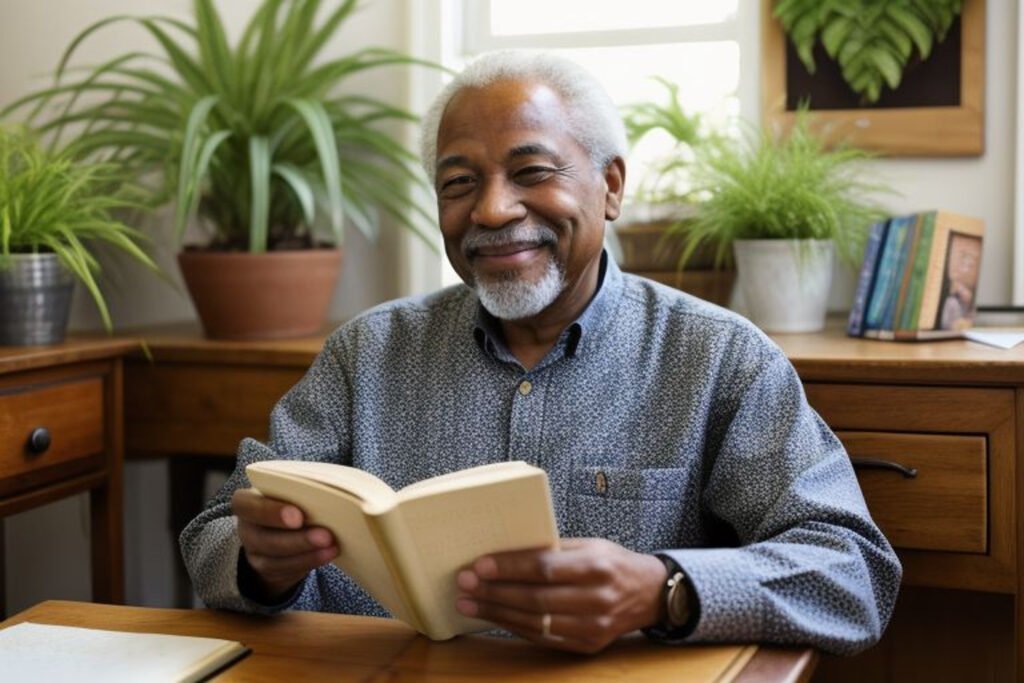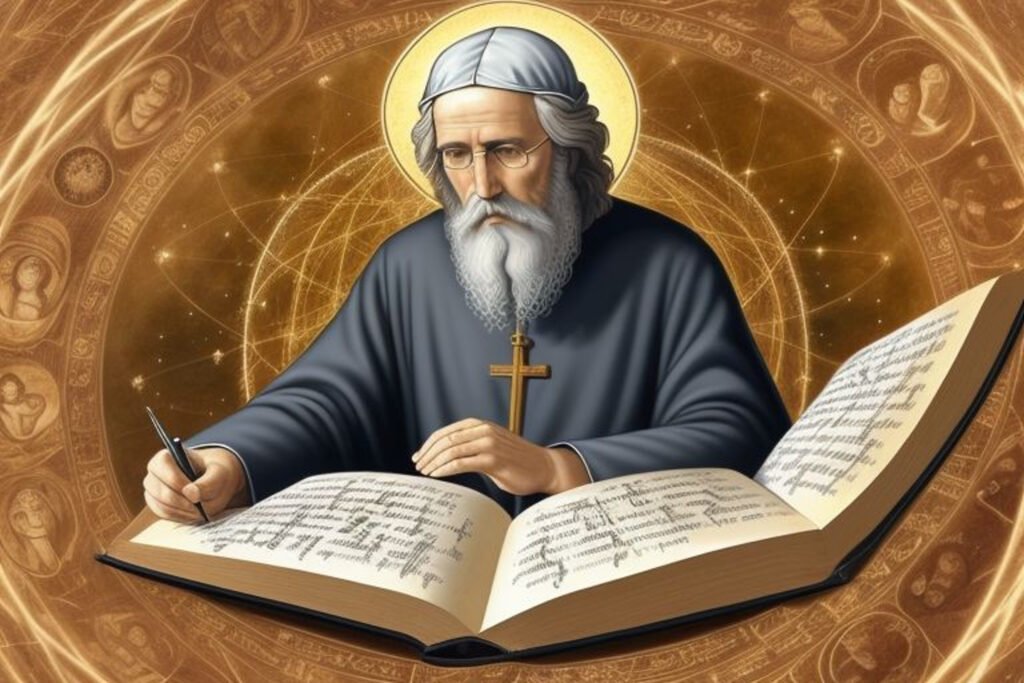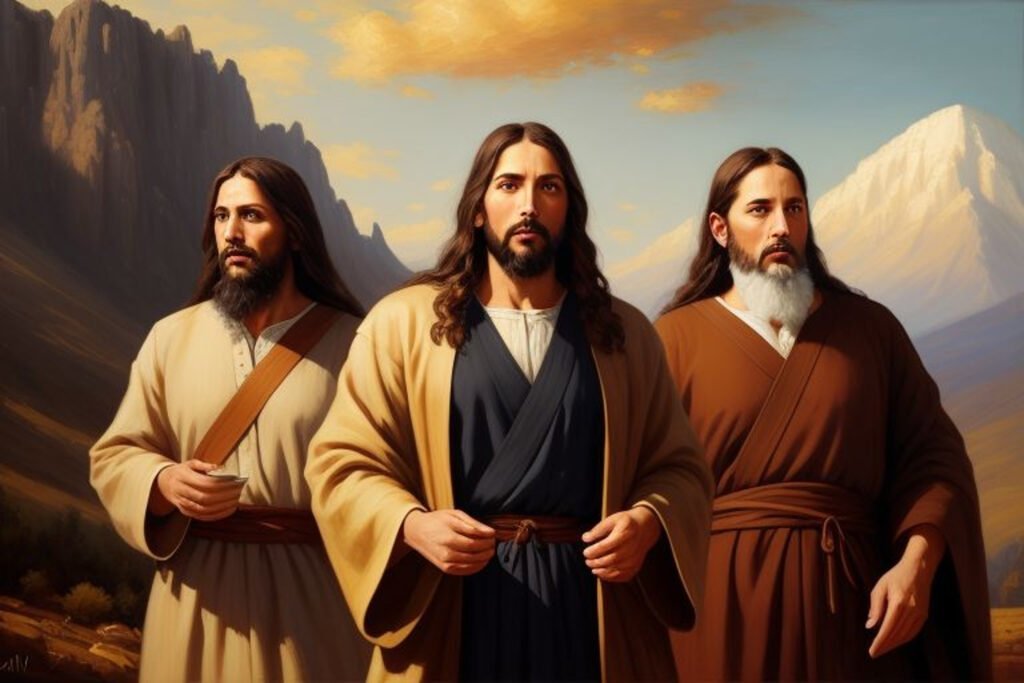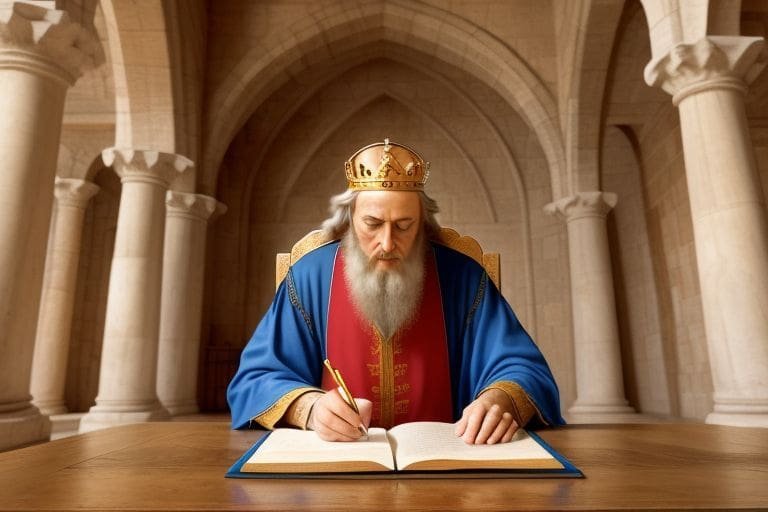Numerous events throughout history have caused Christians to believe the end times were near. The interpretation of apocalyptic events in the Bible, especially in the Book of Revelation, has often been linked to major upheavals, wars, and disasters, leading to widespread eschatological speculation. Are the end times unfolding today? Let’s compare our current world to past events.
Natural Disasters and Climate Change
Some Christians view the increase in the frequency and intensity of natural disasters, such as earthquakes, hurricanes, wildfires, and floods, as aligning with the “birth pains” described in Matthew 24:7, which speaks of earthquakes, famines, and other calamities in the end times. Although climate change is scientifically attributed to human activity, some see the destabilization of weather patterns as evidence of God’s judgment or a sign of the coming apocalypse.
Global Conflict and Wars
Ongoing conflicts in the Middle East, particularly in Israel and surrounding regions, are often linked to biblical prophecies about Israel’s role in the end times. Events like wars in Ukraine, rising tensions between global superpowers, and civil unrest in various countries also echo biblical descriptions of “wars and rumors of wars” (Matthew 24:6), leading some Christians to believe these are indicators of the end.
Moral Decay and Societal Change
Many Christians see the increasing acceptance of behaviors they believe are contrary to biblical teachings—such as shifts in views on marriage, gender, and sexual morality—as evidence of the “great falling away” or apostasy mentioned in 2 Thessalonians 2:3. They perceive a moral and spiritual decline, believing it signals the approach of the end times.
Pandemics and Disease
The global COVID-19 pandemic reignited discussions about the end times, with some interpreting it as a modern-day plague like those mentioned in Revelation (e.g., Revelation 6:8). The scale of the pandemic, its death toll, and some saw the economic and social disruptions it caused as signs of impending tribulation.
Technological Advancements and Global Surveillance
Advancements in technology, particularly related to surveillance, artificial intelligence, and bioengineering, have raised concerns among some Christians about the fulfillment of prophecies from Revelation 13, which speaks of the “mark of the beast” and the ability to control people’s economic activities. Some associate digital IDs, microchips, or other technologies with this prophecy, fearing it could lead to a one-world government or financial system.
Globalism and Economic Instability
Some Christians have interpreted the rise of global institutions, discussions of a “new world order,” and economic crises as aligning with prophecies about the emergence of a one-world government and global financial control. Economic instability, such as inflation, food shortages, and debt crises, is viewed as precursors to the end-time tribulations.
Persecution of Christians
In many parts of the world, Christians face persecution, and this has been seen as a fulfillment of Matthew 24:9, where Jesus warns that His followers will be hated and persecuted. Reports of Christian persecution, particularly in the Middle East, Asia, and Africa, are often cited as evidence of growing hostility toward the faith, reinforcing beliefs that the end is near.
Re-establishment of Israel and Middle East Tensions
Many Christians see the creation of the state of Israel in 1948 as a key event in the timeline of end-times prophecy. The ongoing conflict in the region, including tensions over Jerusalem and surrounding areas, aligns with interpretations of biblical prophecies regarding Israel’s role in the final days (Ezekiel 38-39 and Revelation 16).
These Events Are Not Unique
Many of these events—when combined with a biblical worldview that interprets the Bible’s prophetic books (like Daniel, Ezekiel, and Revelation) lead Christians to ask, are the end times unfolding today? While these beliefs vary widely, such interpretations have a long history of being associated with periods of global crisis. But the world is not lacking in trouble, and there have been equal or greater troubles for every current tribulation. Here are some examples.
The Fall of Jerusalem (70 AD)
Early Christians saw the destruction of the Jewish Temple by the Romans as a fulfillment of Jesus’ prophecy in the Gospels (Matthew 24:1-2) about the destruction of the temple and the signs of the end times. This event was a significant turning point and was interpreted by many early Christians as the beginning of the tribulations leading to Christ’s return.
The Black Death (14th Century)
Christians often saw the devastating plague that killed an estimated one-third of Europe’s population as divine judgment or a sign of the apocalypse. The unimaginable scale of death and suffering, along with religious apocalyptic fervor, led many to believe that the world was in its final days.
The Protestant Reformation (16th Century)
During the Reformation, figures like Martin Luther believed that the Pope represented the Antichrist and that the corrupt state of the Catholic Church signaled the approach of the end times. Some saw religious conflict and upheaval during this period as apocalyptic signs.
The French Revolution (18th Century)
Many Christians, particularly in Britain and America, saw the chaos and secularism of the French Revolution as a precursor to the end times. The violent overthrow of monarchies and the anti-Christian sentiment of revolutionary France led to widespread eschatological interpretations.
The Great Lisbon Earthquake (1755)
This earthquake, which devastated Lisbon and caused massive tsunamis and fires, was often interpreted in Europe as a divine sign. Its destruction, especially in a prominent Catholic nation, led many to believe that God’s judgment was near and that apocalyptic events were unfolding.
World War I (1917)
Many Christians at the time saw the Great War as fulfilling biblical predictions of apocalyptic events. The war’s unprecedented violence, combined with the outbreak of the Spanish flu pandemic in 1918, led some to believe that these were signs of the coming end times. Verses from the Bible, such as those in the Book of Revelation or the Olivet Discourse (Matthew 24:6-8), which speak of wars, pestilences, and widespread chaos, were often cited as evidence that the war marked the beginning of the end. Some even pointed to events like the re-establishment of Israel as a sign of the Second Coming of Christ.
World War II (1939)
Similar to WWI, many Christians interpreted WWII as a sign of the imminent return of Christ and the final battle between good and evil. The rise of Adolf Hitler, the horrors of the Holocaust, and the global nature of the war seemed to fit descriptions of the Antichrist and the tribulations described in the Book of Revelation. The dropping of the atomic bombs on Hiroshima and Nagasaki further deepened these fears, as the sheer destructive power of nuclear weapons was seen as a possible fulfillment of apocalyptic prophecies.
The Cold War and Nuclear Threat (20th Century)
The fear of nuclear annihilation during the Cold War, particularly during moments like the Cuban Missile Crisis, led many Christians to believe that humanity was on the brink of destruction and that this could be part of the apocalyptic end times described in the Bible.
Current Problems Mirror The Past
The best way to answer the question “Are the End Times unfolding today?” is to look at past events. If we look at our current problems, most of them have historical precursors. Let\’s go through each of the areas above and look for historical equivalents.
Natural Disasters of the Past
Two examples of natural disasters that prompted concern about the End times include the Year Without a Summer in 1816 and the Dust Bowl of the 1030s. After the eruption of Mount Tambora in Indonesia in 1816, the resulting volcanic ash cloud caused global temperatures to plummet, leading to failed crops, famine, and economic hardship, especially in Europe and North America. Many believed it was a sign of divine wrath or the coming apocalypse, as weather patterns dramatically shifted, causing “unnatural” seasons.
And in the Dust Bowl, severe drought and poor agricultural practices in the Great Plains of our own country led to massive dust storms, crop failure, and widespread displacement. The Dust Bowl coincided with the Great Depression, leading to feelings of despair and uncertainty about the future, similar to how modern climate catastrophes are often viewed.
Past Global Conflicts
The Napoleonic Wars
The current wars taking place around the world are nothing in comparison to the devastation brought on by the two World War. The Napoleonic Wars (1803–1815) were a series of major conflicts involving Napoleon Bonaparte’s French Empire and a shifting array of European coalitions. The wars spread across Europe, the Middle East, and parts of Africa, reshaping political borders and military strategy.
The Thirty Years\’ War
The Thirty Years’ War (1618–1648) was one of Europe’s deadliest conflicts. This war began as a religious dispute within the Holy Roman Empire but eventually drew in much of Europe, causing immense destruction, especially in the German states.
The American Civil War
The Civil War (1861–1865) was a brutal internal conflict between the Northern Union states and the Southern Confederate states. This war was primarily fought over slavery and states’ rights, leading to the abolition of slavery and the preservation of the Union. It remains the deadliest war in U.S. history.
The Seven Years\’ War
The Seven Years’ War (1756–1763) is often regarded as the first global war. This conflict involved most of the great powers of the time, with battles fought in Europe, North America (where it is known as the French and Indian War), the Caribbean, and India.
The Crimean War
Finally, the Crimean War (1853–1856), was fought between Russia and an alliance of Britain, France, the Ottoman Empire, and Sardinia. This war is notable for Sevastopol\’s siege and the Light Brigade\’s Charge. It stemmed from power struggles over territories in the declining Ottoman Empire and impacted European military and diplomatic relations.
All of these devastating wars prompted people to ask the question, “Are the End Times unfolding today?”
Moral Decline Is Nothing New
While it is clear that there is a dramatic moral decline occurring in the world today, it is nothing new. Throughout history, Christians have often believed that secular culture was in moral decay, and these concerns were evident in various time periods.
Greek and Roman Culture (1st Century)
The Apostle Paul, during his missionary journeys, witnessed what he perceived as moral decay in the Greco-Roman world. Greek culture, especially in cities like Corinth and Ephesus, was marked by practices that Christians found morally troubling, such as sexual immorality, idol worship, and rampant materialism. Paul frequently addressed these issues in his letters (like 1 Corinthians), urging Christians to resist these cultural norms. He viewed the philosophical focus on pleasure (e.g., Epicureanism) and the worship of multiple gods as part of a morally corrupt society that stood in opposition to the values of Christianity.
The Fall of the Roman Empire (5th Century)
As the Roman Empire began to crumble in the 5th century, many Christian thinkers, including St. Augustine, believed that the empire’s decline was partly due to moral and spiritual decay. Augustine’s seminal work, The City of God, was written in response to the sack of Rome in 410 AD. He argued that the fall of Rome was not the result of the abandonment of pagan gods, as some suggested, but rather a consequence of moral and spiritual collapse. He highlighted Roman society\’s decadence, greed, and immorality as symptoms of this decay, contrasting it with the values of the “City of God.”
The Enlightenment Era (18th Century)
During the Enlightenment, many Christians believed that secular culture was in moral decline due to the rise of rationalism and secular humanism. Enlightenment thinkers like Voltaire and Rousseau championed reason over religious faith and questioned the authority of the Church. Many Christians saw this as an attack on traditional values, leading to moral relativism and a rejection of Christian ethics. The increasing emphasis on individual autonomy, secular governance, and material progress was viewed as a significant departure from the moral foundations provided by Christianity. Christian leaders warned that this shift would result in moral decay and spiritual emptiness.
Major Pandemics
Throughout history, pandemics have had profound global impacts, often eclipsing even the recent COVID-19 pandemic in terms of devastation.
The Black Death
As mentioned above, one of the most significant was the Black Death, which swept across Europe, Asia, and North Africa in the 14th century. Thought to be caused by the bubonic plague, this pandemic killed an estimated 75-200 million people, wiping out nearly a third of Europe’s population. The Black Death had lasting effects on the economy, labor structures, and even religious practices, as survivors struggled to understand and cope with the immense death toll. It led to social upheaval and the decline of feudalism, altering the trajectory of European history in profound ways.
The Spanish Flu
Another significant pandemic was the Spanish Flu of 1918, which infected about one-third of the world’s population and killed an estimated 50 million people—far more than World War I, which had just ended. This influenza pandemic struck in waves, with the second wave being particularly deadly. It overwhelmed healthcare systems and led to widespread quarantines and public health measures similar to those seen during the COVID-19 pandemic. The Spanish Flu disproportionately affected young, healthy adults, leading to a dramatic loss of life in that demographic. Its societal impact was vast, influencing healthcare practices, government responses to future pandemics, and raising awareness of the need for global cooperation in combating infectious diseases.
Looming Technological Advancements
Throughout history, certain technological advancements have triggered fears among Christians, prompting them to wonder, \”Are the End Times unfolding today?\” Now, these events seem harmless, but back then they were truly radical changes to society. Change makes some people nervous. No doubt, these developments caused many to see foreboding signs from the Book of Revelation.
The Printing Press
One notable example was the invention of the printing press in the mid-15th century. While it revolutionized the dissemination of knowledge, allowing for mass production of the Bible and Christian literature, some saw it as a tool that could spread false teachings and hasten the spread of heresy, both of which they believed were signs of the apocalypse. The rapid increase in the spread of information contributed to a sense of unease about the potential for societal change, much like the warnings of widespread deception found in biblical prophecy.
The Industrial Revolution
Another instance occurred during the Industrial Revolution in the 19th century. The emergence of steam engines, factories, and mechanized production lines led to profound shifts in daily life and labor. Some viewed the rapid urbanization and dehumanization of factory work as the breakdown of natural, God-ordained social order, and this, combined with the sense of moral decay in industrial cities, heightened apocalyptic fears. In this context, the rise of technology seemed to align with the imagery of increasing human hubris and corruption that some Christians associated with the final judgment.
Nuclear Weapons
Additionally, the development of nuclear weapons during World War II led many Christians to believe that the end times were imminent. The atomic bombings of Hiroshima and Nagasaki, with their unprecedented destruction, were seen as a terrifying reflection of the kind of cataclysmic events described in Revelation, where the earth would be destroyed by fire. The Cold War further amplified these fears, as the constant threat of nuclear annihilation seemed to echo the apocalyptic scenarios involving wars, rumors of wars, and global devastation. The invention of such massively destructive technology seemed to bring the world to the brink of the final judgment.
I do not doubt that all three of these events led many Christians to ask the question, “Are the End Times unfolding today?”
Globalism and the End Times
In the past, Christians saw global political and governmental structures as potentially fulfilling apocalyptic visions of centralized world power described in biblical prophecy. Three examples include:
Roman Empire (1st century AD)
During the height of the Roman Empire, Christians saw the vast expansion and control of much of the known world as a possible sign of the end times. The Roman Emperor’s claim to be a god-like figure, coupled with the centralized power and persecution of Christians, was interpreted by many early believers as fulfilling prophecies in Revelation about a global empire and a leader demanding worship.
League of Nations (1919)
After World War I, President Woodrow Wilson advocated for the formation of the League of Nations, an international organization aimed at preventing future wars and fostering global cooperation. For some Christians, this global initiative raised concerns about the potential for a one-world government, which they linked to the prophecies in Revelation about a global political power during the end times.
United Nations (1945)
Following World War II, the establishment of the United Nations (UN) was seen by many as another move toward global governance. As with the League of Nations, some Christians feared that the UN could become the foundation for a one-world government, often associated with the rise of the Antichrist in eschatological prophecy.
These developments are all equal to, if not greater than, the current state of globalism.
Christian Persecution
While Christian persecution in Muslim nations, China, and other areas around the globe is currently taking place, this also is not a new occurrence. Unfortunately, such persecution has a long history, starting with the Roman Empire, when Christians were burned at the stake. Throughout history, such persecution has been unceasing. As recently as World War II, millions of Catholics were killed by the Nazis.
Are The End Times Unfolding Today?
In the Bible, Jesus says that no one knows when the end times will come.
“But concerning that day and hour no one knows, not even the angels of heaven, nor the Son, but the Father only”. Matthew 24:36
Many people today, pastors included, believe our current circumstances indicate that the end is near. I am not convinced that today’s troubles are any worse, any more severe, and any more foreboding than events of the past.
Our obsession with Jesus\’ imminent return points more to our self-focused nature than Biblical truth. It’s all about us, so why wouldn’t we be the ones to experience the End Times? The truth is that it’s definitely not all about us – it never has been and never will be. We are not special. On the contrary, we are typical and completely predictable – a living testimony to the fact that humans always have and always will continue to fall short of God’s expectations. Thanks be to God for sending His Son to save us from our shortcomings.
“For God so loved the world,[a] that he gave his only Son, that whoever believes in him should not perish but have eternal life.” John 3:16 (ESV)
About Raleigh Acupuncture
At Raleigh Acupuncture, we appreciate that you trust us with the most critical aspect of your life — your health. We want to partner with you in your healing process. We strive to achieve this through clear communication, mutual respect, honesty, and integrity. Chinese medicine is a powerful tool for achieving health and includes acupuncture, Chinese natural herbal medicine, dietary counseling, health education, physical exercise suggestions, and lifestyle recommendations to achieve optimal health. The Raleigh Acupuncture mission focuses on providing you with the best quality health care to live a fulfilling life.
BOOK NOW to schedule an appointment online.
Meet the Practitioners (Video).
Learn about all the conditions we treat.
Focus Keyphrase: Are The End Times Unfolding Today?
Image generated with https://perchance.org/ai-text-to-image-generator

